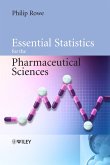"Christopher Wanjek uses a take-no-prisoners approach in debunkingthe outrageous nonsense being heaped on a gullible public in thename of science and medicine. Wanjek writes with clarity, humor,and humanity, and simultaneously informs and entertains." -Dr. Michael Shermer, Publisher, Skeptic magazine; monthlycolumnist, Scientific American; author of Why People Believe WeirdThings Prehistoric humans believed cedar ashes and incantations could curea head injury. Ancient Egyptians believed the heart was the centerof thought, the liver produced blood, and the brain cooled thebody. The ancient Greek physician Hippocrates was a big fan ofbloodletting. Today, we are still plagued by countless medicalmyths and misconceptions. Bad Medicine sets the record straight bydebunking widely held yet incorrect notions of how the body works,from cold cures to vaccination fears. Clear, accessible, and highly entertaining, Bad Medicine dispelssuch medical convictions as: * You only use 10% of your brain: CAT, PET, and MRI scans all provethat there are no inactive regions of the brain . . . not evenduring sleep. * Sitting too close to the TV causes nearsightedness: Your motherwas wrong. Most likely, an already nearsighted child sits close tosee better. * Eating junk food will make your face break out: Acne is caused bydead skin cells, hormones, and bacteria, not from a pizza witheverything on it. * If you don't dress warmly, you'll catch a cold: Cold viruses arethe true and only cause of colds. Protect yourself and the ones you love from bad medicine-the brainyou save may be your own.
Dieser Download kann aus rechtlichen Gründen nur mit Rechnungsadresse in A, B, BG, CY, CZ, D, DK, EW, E, FIN, F, GR, HR, H, IRL, I, LT, L, LR, M, NL, PL, P, R, S, SLO, SK ausgeliefert werden.
For skeptics, always fans of science: The first two books in aseries devoted to "bad science," Bad Astronomy by PhilipPlait and Bad Medicine (Wiley, $15.95) by ChristopherWanjek, may warm even a Scrooge's heart. In short chapters, Plaittackles misperceptions about why the moon looks larger on thehorizon and why stars twinkle before moving on, dismantlingconspiracy kooks who doubt the moon landing and offering a top 10list of bad science moments in movie history. Wanjek, a sciencewriter who has also written jokes for The Tonight Show andSaturday Night Live, takes an edgy and funny tack indebunking myths such as humans using only 10% of their brains, theutility of "anti-bacterial" toys and the safety of "natural" herbalremedies, ones often loaded with powerful chemicals. (USATODAY, December 3, 2002)
"...Bad Medicine is an enjoyable romp through a host ofbiomedical misconceptions..." (New Scientist, 21 December 2002)
"...Wanjek shoots and scores when he tackles the major myths ofmedicine..." (Focus, February 2003)
"...Bad Medicine is an enjoyable romp through a host ofbiomedical misconceptions..." (New Scientist, 21 December 2002)
"...Wanjek shoots and scores when he tackles the major myths ofmedicine..." (Focus, February 2003)









